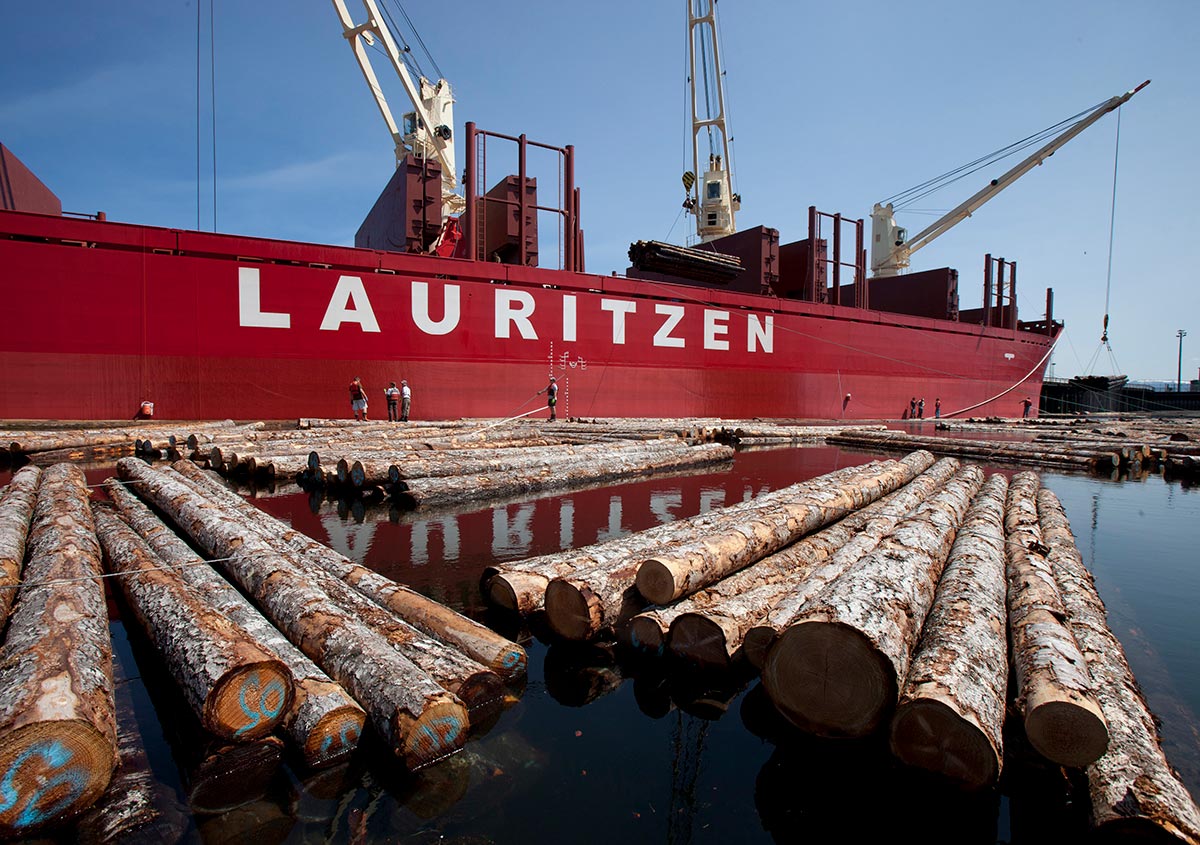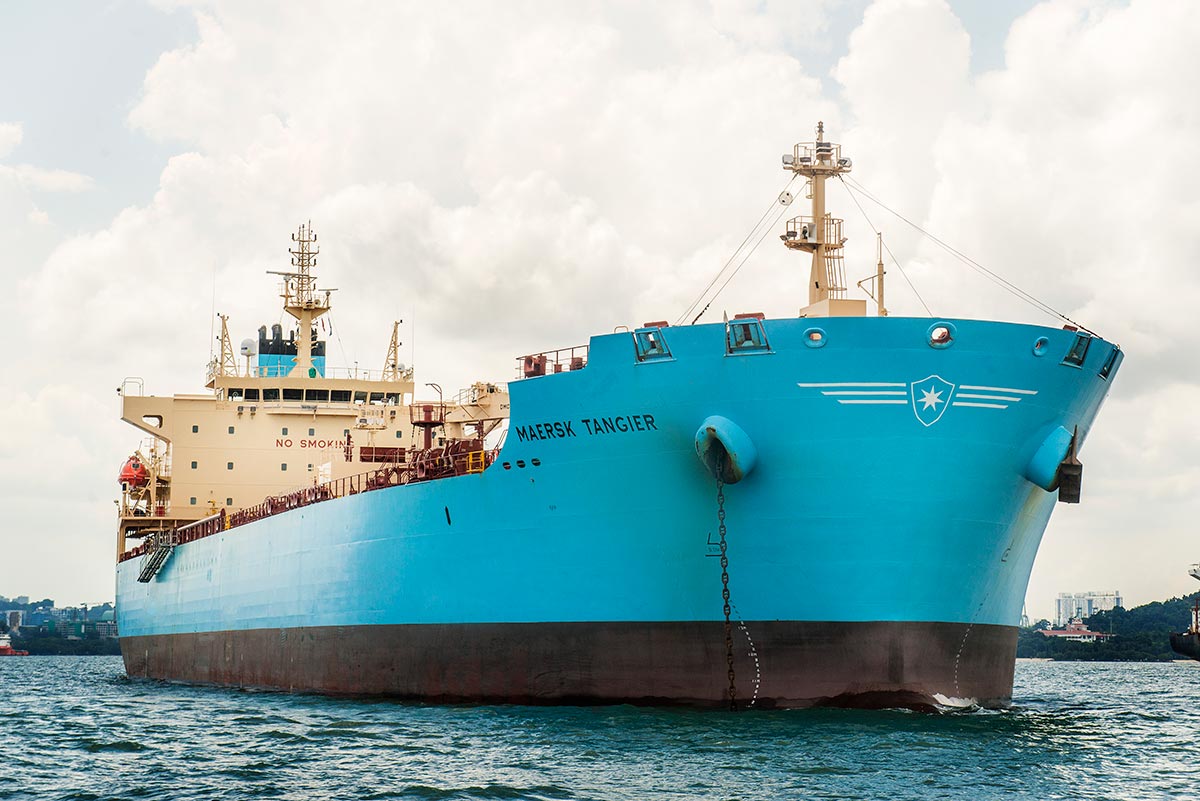Danish technology will make shipping autonomous and environment friendly
Intelligent vessels that can navigate safely into a port and berth without emitting pollutants will become a reality in the near future according to the ambitious objective of ShippingLab – the new platform of the Blue Denmark for maritime research, development and innovation.
Behind ShippingLab are a large number of shipowners, technology companies, universities, GTS Institutes (Danish approved technology service institutes), organisations and public agencies. The nearly 30 project partners have decided to develop Denmark’s first autonomous and environment-friendly vessel by combining Danish competences in the fields of digitalization, autonomous navigation and environment-friendly technology. One of the ambitions is to ensure “zero-emission navigation” in certain areas, e.g. ports and coastal areas.
The maritime sector, like the international community as such, is facing a number of large environmental challenges. The purpose of the cooperation is to ensure that Danish maritime competences within environmental technology are still in the forefront globally and, moreover, to combine this with the development of competences in the field of autonomous solutions for vessels. This area is developing rapidly, and it has a huge potential for the companies that manage to address it.
Kjeld Dittmann, Chairman of ShippingLab and Managing Director of Wärtsilä Lyngsø Marine, says:
“Today, the Blue Denmark is among Denmark’s absolute strengths – and so we must also be tomorrow. With ShippingLab we create a common platform for maritime research, development and innovation which will help us ensure that we also in the future will have the competences to be in the global forefront in a highly competitive global market. Danish maritime technologies and solutions play an important role in solving some of the major global challenges, and the Blue Denmark must continue to be an industry that creates growth and prosperity in Denmark. The close cooperation among the companies in the maritime business is crucial to this.”
The intentions behind ShippingLab are in line with the vision of Denmark’s National Reform Programme to enhance Denmark’s position as a global maritime powerhouse, and the cooperation will improve the international competitive power of the Blue Denmark in terms of maritime solutions that comply with not only present, but also future, wishes and requirements for autonomy, safety and environment.
Tangible initiatives
One of the many ShippingLab activities is the development of technology to ensure autonomy and environment-friendly navigation with both small and large vessels.
The project includes machine learning which is expected to contribute considerably to a more safe and efficient transportation which can be combined with the development of emission-free navigation in and near a port.

The development of these solutions for commercial shipping is very expensive and only possible because Innovation Fund Denmark has invested DKK 33 m. in ShippingLab.
Facts about ShippingLab
- ShippingLab is a joint industry initiative aimed at developing Danish competences in the fields of digitalization, autonomous shipping and environment-friendly technology.
- The steering group behind ShippingLab consists of J. Lauritzen, Logimatic, Wärtsilä Lyngsø Marine, DTU, FORCE Technology, Danish Maritime, Danish Shipping and Danish Maritime Authority.
- The project consists of three focal areas
- Digital Ship Operations
- Autonomy
- Decarbonizarion
- ShippingLab has a duration of three years and will be a catalyst for subsequent work in the fields of maritime research, development and innovation.
- ShippingLab is supported by Innovation Fund Denmark, The Danish Maritime Fund, Orient’s Fund and Lauritzen Fonden. In addition, the project partners’ contributions will be self-financed.
- The total budget is DKK 87 m.
Goal and content
The goal of ShippingLab is to develop Denmark’s first autonomous, environment-friendly vessel.
This is achieved through a combination of four work packages:
WP1 – Digital Ship Operations
This work package focuses on developing tools and methods to create so-called “digital twins” of vessel by using high-frequency data.
No two vessels are alike. By developing digital twins of a vessel, optimization of the operation of the vessel will become far more precise and efficient as it will be possible to simulate the effect of the improvements in an exact model of the specific vessel.

WP2 – Autonomy
This work package focuses on demonstrating the usability of autonomous navigation in coastal areas. This is to be achieved by developing new methods and algorithms that will work in combination with existing technologies for navigation, steering, manoeuvring and berthing of both new and existing vessels.
Autonomous is not synonymous with unmanned navigation. The advantage of autonomous navigation is that the optimal power is used to drive and navigate the vessel, and that the safety at sea is enhanced by reducing human influence on the vessel’s operation.
WP3 – Decarbonization
This work package focuses on developing and testing solutions that will enable vessels to operate without emitting harmful fumes in for instance ports, coastal areas or similar.
In the first stage, the solutions will focus on operation for brief periods, but the goal of the activities in the work package is to drive the development of emission-free navigation, thereby assisting the maritime industry to meet the 2050 requirement that the emission of greenhouse gases from maritime operations must be half the 2008 level.
WP4 – General Management, Integration & Outreach
Apart from the technical work packages, ShippingLab also focuses on developing additional activities that may contribute to meeting the goal better of faster. This can be done in cooperation with new or existing partners, consequently project and business development are important parts of the task.
Moreover, the activities of ShippingLab are intended to create a long-term cooperation platform for research, development and innovation in the maritime industry, thereby enhancing the cooperation between companies in the maritime industry on joint development as well as attracting more students to the business by making the possibilities and challenges in Denmark’s most global industry more visible.